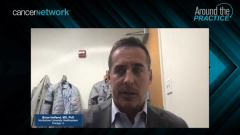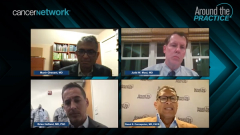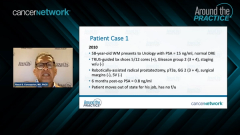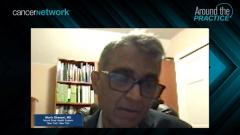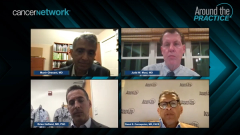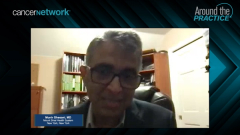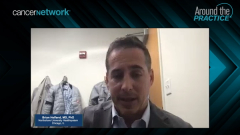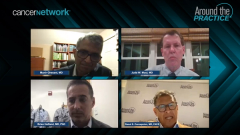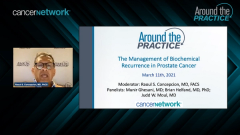
Considerations for Initiating ADT After Biochemical Recurrence in Prostate Cancer
Experts in prostate cancer discuss considerations for initiating ADT therapy after definitive treatment in patients with prostate cancer in the context of biochemical recurrence.
Episodes in this series

Raoul S. Concepcion, MD, FACS:When you do have a biochemical recurrence, you’ve defined what that looks like for you regarding surgery and radiation. I think Judd has brought up some very good points relative to looking at the initial Gleason [score] at the time of therapy, especially in the patients with radical prostatectomy [RP]. I think the…data spelled that out at [Johns Hopkins Medicine]. What are the factors that are going to say, like you said, just because you have a biochemical recurrence and a rise in the PSA [prostate-specific antigen] doesn’t necessarily mean it’s cancer cells; it could be benign cells. What are the parameters? What are some of the things that are going to push you to say, “I better initiate ADT [androgen deprivation therapy] in this patient?”
Brian Helfand, MD, PhD: …Or some form of therapy. I think that is a lot of the art form. I think it’s not a simple straightforward [idea] that everyone who has a biochemical recurrence needs treatment. If you look at the data, not everyone who has a biochemical recurrence will ultimately go on to succumb from prostate cancer or develop obvious metastasis. I think that the timing of the recurrence is imperative. Notably, someone who has a PSA recurrence 10 or 15 years later is different than the guy who has a recurrence almost immediately, or within a few months following treatment.
Additionally, regarding the patient’s comorbidities, if a patient is much older, even though it’s a number and very few of us can give up following that number for some reason, we still are reluctant to initiate treatment if there are a lot of comorbidities or underlying factors that they’re more likely to die from. I think timing and how fast that PSA is doubling, or the kinetics underlying that PSA, if those PSA values are increasing rapidly, we’re a lot more concerned that that is prostate cancer. Because, if it is benign glands, the rate of rise or changes over time is going to be a lot slower, and typically, you’re not going to get to a lot higher values like you would if it were cancer.
Raoul S. Concepcion, MD, FACS: I think the Hopkins data in the surgical patient were that if you had a Gleason [score] greater than 8 at the time of surgery, if the biochemical recurrence was inside 3 years, and the PSA doubling time was less than 9 to 12 months, that patient was definitely, to your point, going to be at risk from succumbing to his disease if therapy wasn’t initiated.
Transcript edited for clarity.
Newsletter
Stay up to date on recent advances in the multidisciplinary approach to cancer.



